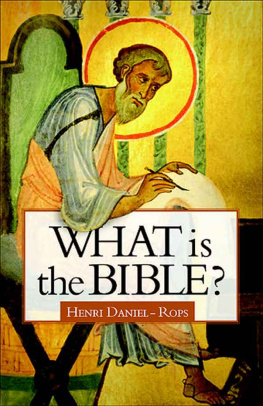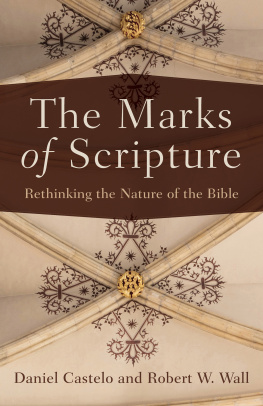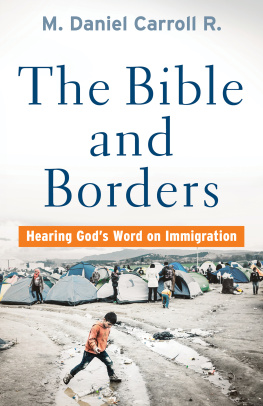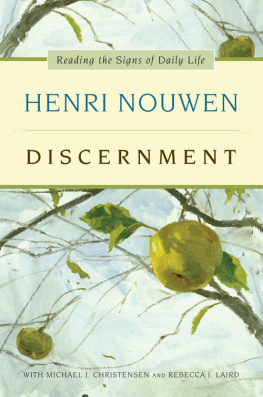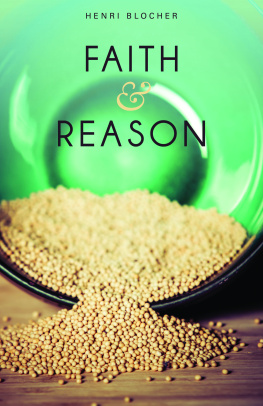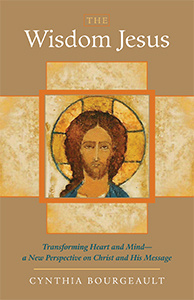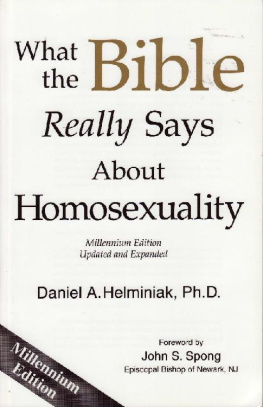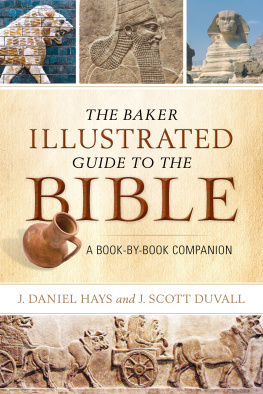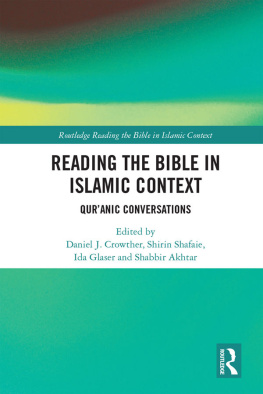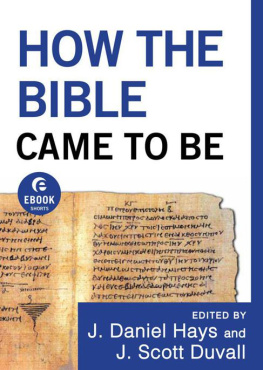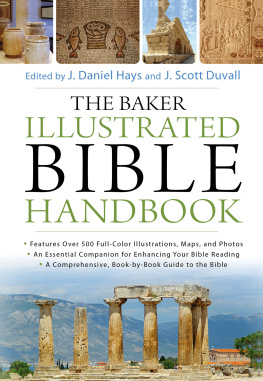Henri Daniel-Rops - What is the Bible?
Here you can read online Henri Daniel-Rops - What is the Bible? full text of the book (entire story) in english for free. Download pdf and epub, get meaning, cover and reviews about this ebook. year: 2013, publisher: Sophia Institute Press, genre: Religion. Description of the work, (preface) as well as reviews are available. Best literature library LitArk.com created for fans of good reading and offers a wide selection of genres:
Romance novel
Science fiction
Adventure
Detective
Science
History
Home and family
Prose
Art
Politics
Computer
Non-fiction
Religion
Business
Children
Humor
Choose a favorite category and find really read worthwhile books. Enjoy immersion in the world of imagination, feel the emotions of the characters or learn something new for yourself, make an fascinating discovery.
- Book:What is the Bible?
- Author:
- Publisher:Sophia Institute Press
- Genre:
- Year:2013
- Rating:5 / 5
- Favourites:Add to favourites
- Your mark:
- 100
- 1
- 2
- 3
- 4
- 5
What is the Bible?: summary, description and annotation
We offer to read an annotation, description, summary or preface (depends on what the author of the book "What is the Bible?" wrote himself). If you haven't found the necessary information about the book — write in the comments, we will try to find it.
What is the Bible? — read online for free the complete book (whole text) full work
Below is the text of the book, divided by pages. System saving the place of the last page read, allows you to conveniently read the book "What is the Bible?" online for free, without having to search again every time where you left off. Put a bookmark, and you can go to the page where you finished reading at any time.
Font size:
Interval:
Bookmark:
What Is the Bible?
Henri Daniel-Rops
SOPHIA INSTITUTE PRESS
Manchester, New Hampshire
What Is the Bible? , originally published in France under the title Quest-ce que la Bible? and translated by J. R. Foster, was formerly published in 1958 by Hawthorn Books, Inc., New York, as volume 60 of the Twentieth-Century Encyclopedia of Catholicism, edited by Henri Daniel-Rops. This 2006 edition by Sophia Institute Press includes editorial revisions to the original English edition to remove dated material and infelicities in grammar.
Copyright 2006 Sophia Institute Press
Printed in the United States of America
All rights reserved
Cover design by Theodore Schluenderfritz
Cover image: an illumination from a Byzantine manuscript depicting St. Matthew seated at his writing desk. Photo courtesy of Werner Forman / Art Resource, New York.
No part of this book may be reproduced, stored in a retrieval system, or transmitted in any form, or by any means, electronic, mechanical, photocopying, or otherwise, without the prior written permission of the publisher, except by a reviewer, who may quote brief passages in a review.
Sophia Institute Press
Box 5284, Manchester, NH 03108
1-800-888-9344
www.SophiaInstitute.com

Nihil obstat:
Johannes M. T. Barton, S.T.D., L.S.S.,
Censor Deputatus

Imprimatur:
E. Morrogh Bernard, Vicarius Generalis
Westminster, April 25, 1958
p. cm.(Twentieth-century encyclopedia of Catholicism ; v. 60) Originally published: New York : Hawthorn Books, 1958. Includes bibliographical references.
ISBN-13: 978-1-933184-24-1 (pbk. : alk. paper)
1. Bible Introductions. I. Title.
BS475.3.D36 2006 220.61 dc22200601751206 07 08 09 10 9 8 7 6 5 4 3 2 1
Also from Sophia Institute Press by Henri Daniel-Rops:
Heroes of God: Eleven Courageous Men and Women Who Risked Everything to Spread the Catholic Faith

The Books of the Bible
Except where noted, the biblical quotations in the following pages are taken from the Knox Version of the Old and New Testaments. The names of some of the books in the Bible, however, have been changed to follow the more familiar spellings of the Revised Standard Version (RSV). This list of the books of the Bible includes in parentheses the older spellings of certain books, as they appear, for instance, in the Knox and Douay-Rheims versions.
THE BOOKS OF THE OLD TESTAMENT
- Genesis
- Exodus
- Leviticus
- Numbers
- Deuteronomy
- Joshua (Josue)
- Judges
- Ruth
- 1 Samuel (1 Kings)
- 2 Samuel (2 Kings)
- Psalms
- Proverbs
- Ecclesiastes
- Song of Solomon (Canticle of Canticles or Song of Songs)
- Wisdom of Solomon (Wisdom)
- Sirach (Ecclesiasticus)
- Isaiah (Isaias)
- Jeremiah (Jeremias)
- Lamentations
- Baruch
- Ezekiel (Ezechiel)
- Daniel
- 1 Kings (3 Kings)
- 2 Kings (4 Kings)
- 1 Chronicles (1 Paralipomenon)
- 2 Chronicles (2 Paralipomenon)
- Ezra (1 Esdras)
- Nehemiah (2 Esdras)
- Tobit (Tobias)
- Judith
- Esther
- Job
- Hosea (Osee)
- Joel
- Amos
- Obadiah (Abdias)
- Jonah (Jonas)
- Micah (Micheas)
- Nahum Habakkuk (Habacuc)
- Zephaniah (Sophonias)
- Haggai (Aggeus)
- Zechariah (Zacharias)
- Malachi (Malachias)
- 1 Maccabees (1 Machabees)
- 2 Maccabees (2 Machabees)
THE BOOKS OF THE NEW TESTAMENT
- Matthew
- Mark
- Luke
- John
- Acts of the Apostles
- Romans
- 1 Corinthians
- 2 Corinthians
- Galatians
- Ephesians
- Philippians
- Colossians
- 1 Thessalonians
- 2 Thessalonians
- 1 Timothy
- 2 Timothy
- Titus
- Philemon
- Hebrews
- James
- 1 Peter
- 2 Peter
- 1 John
- 2 John
- 3 John
- Jude
- Revelation (Apocalypse)
Chapter 1

The Book of Books
There is a unique and inexhaustible book in which all there is to say about God and man is said. Gods presence pervades it, and in it are revealed all those aspects of His mysterious being that we are allowed to glimpse; in it He appears, He speaks, and He acts. Man can also see himself in it, in all his potentialities, his grandeur and his weakness, from his sublimest aspirations down to those obscure regions of consciousness in which each of us bleeds from the wound of Original Sin. It embodies above all a religious doctrine, the doctrine of the revealed truth; but human knowledge and intellectual activity also find in it rich and never-failing nourishment. It is as vain to claim to understand the principles of ethics and law as of sociology, economics, and even politics if we are unaware of the message contained in this book.
Art and literature are still more obviously dependent on it. But for this book, the sculptors of Chartres, the mosaic-workers of Ravenna, Michelangelo, Rembrandt, and El Greco would not be the artists we admire. Still more important and significant than the number of the works that owe their themes to it is the existence, also due to the Bible, of an art that transcends the laws of aesthetics and acquires a spiritual meaning. It is the same with literature. This book praised by Montaigne and Racine, by Shakespeare and Goethe, even by Nietzsche and Anatole France, has done more than provide innumerable subjects for dramatists; from it flows the stream of living water that feeds the roots of masterpieces. But for the Bible, would there ever have been a Dante, a Racine, a Pascal, or a Dostoyevsky?
Paul Valery wisely pointed out that western civilization rests on three foundations: Greek intellectual curiosity, Roman order, and Judaeo-Christian spirituality. Let one of these collapse, and the whole edifice is threatened with destruction. And of these three foundations, the third, and really the most important because it endows the whole structure with its true meaning, is the unique and inexhaustible book that gives it its character and initial impetus. Without it the West would not be what it is.
But to link this book with the existence and development of western civilization alone is to falsify its meaning and limit its range. We can see more and more clearly, as efforts are made to render its message universal, that, by its underlying premises as well as by the modes of expression it employs, it is perfectly suited to mentalities very different from those of Europe, that Asia and Africa can welcome it perfectly naturally and that their genius is even, in a sense, allowed for in it.
Such is the Bible, the book of books, the book of man and the book of God.

How the Bible got its name
The very name we give this book sums up and indicates all its exceptional characteristics. The word goes back beyond its Greek etymology biblos or biblion (book) to those distant days in the second millennium before Christ, when the Phoenicians of Byblos had made their port the greatest papyrus market of the time and imposed the name of their town on the product they sold. Its use in the sense we give it, however, goes back only to the fourth century of our era, to the days of St. Jerome, who gave currency to the expression the Holy Books or simply the Books; in Greek, ta biblia. Low Latin turned the word into a feminine and declined it biblia, bibliae. And so in everyday usage this plural became a singular, and this collection of seventy-three books was referred to by a word that implies its underlying unity, its supernatural harmony. The synonym that has often been used to describe it, scripture a term that in fact translates the Holy Scriptures expresses in different words the same idea: that all the heterogeneous elements of which it is formed coalesce into a higher synthesis.
Next pageFont size:
Interval:
Bookmark:
Similar books «What is the Bible?»
Look at similar books to What is the Bible?. We have selected literature similar in name and meaning in the hope of providing readers with more options to find new, interesting, not yet read works.
Discussion, reviews of the book What is the Bible? and just readers' own opinions. Leave your comments, write what you think about the work, its meaning or the main characters. Specify what exactly you liked and what you didn't like, and why you think so.

